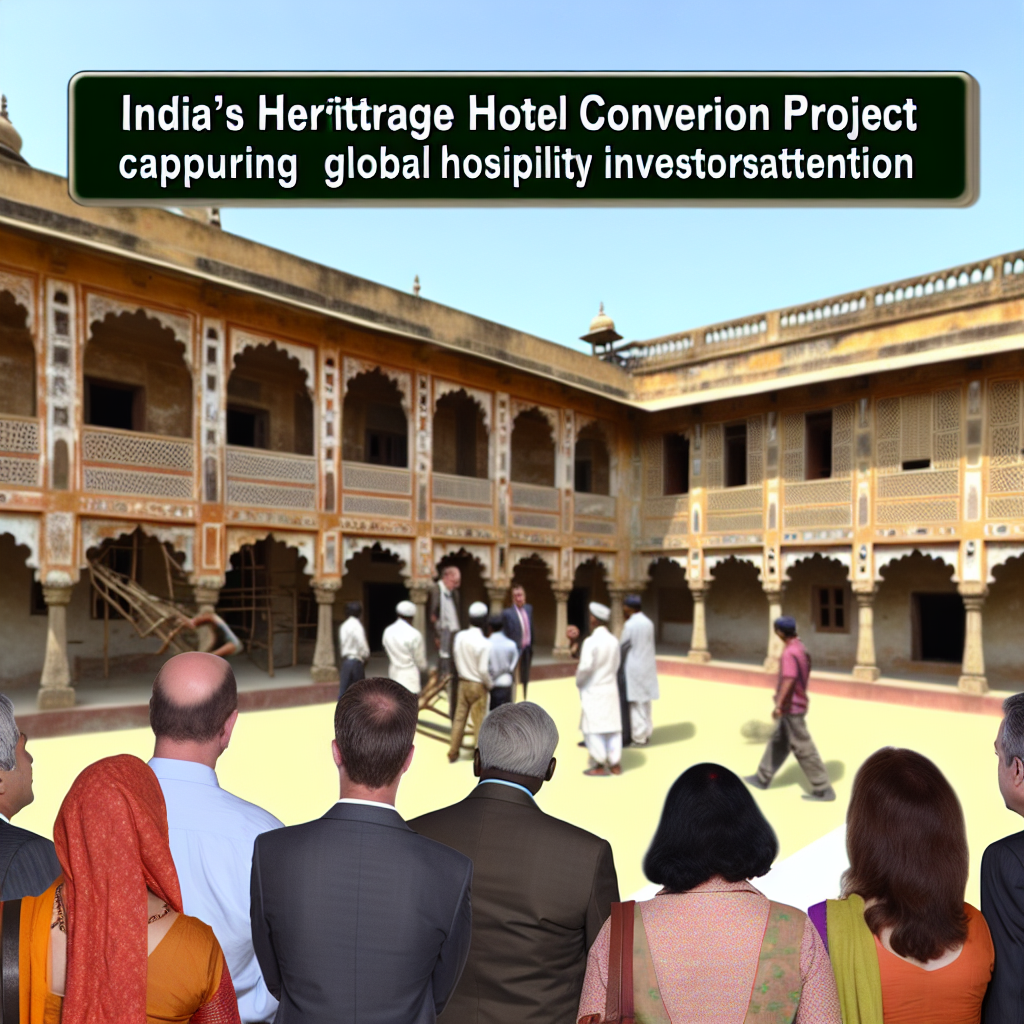India’s Heritage Hotel Conversion Project Attracts Global Hospitality Investors
India, a land rich in history and culture, is witnessing a remarkable transformation in its hospitality sector. The Heritage Hotel Conversion Project, an ambitious initiative aimed at converting historic palaces, forts, and havelis into luxury hotels, is drawing significant attention from global investors. This project not only preserves India’s architectural legacy but also boosts tourism and economic growth, making it a compelling opportunity for international hospitality players.
The Vision Behind the Heritage Hotel Conversion Project
The Heritage Hotel Conversion Project is designed to revive India’s architectural marvels by repurposing them into premium hospitality destinations. Many of these structures, once royal residences or administrative centers, have fallen into disrepair due to neglect and urbanization. The project aims to:
- Preserve and restore historical buildings with cultural significance.
- Promote sustainable tourism by integrating heritage with modern amenities.
- Create unique luxury experiences that attract both domestic and international travelers.
- Generate employment and stimulate local economies.
By blending history with hospitality, the project offers a niche market that appeals to travelers seeking authentic cultural experiences.
Global Hospitality Investors Eyeing India’s Heritage Hotels
The global hospitality industry has taken note of India’s heritage hotel conversions as a lucrative investment avenue. According to a report by Frost & Sullivan, the Indian heritage hotel market is expected to grow at a CAGR of 12% over the next five years, driven by rising domestic tourism and increasing foreign arrivals.
Several international hotel chains and private equity firms have entered partnerships with Indian heritage trusts and state governments to develop these properties. For example:
- ITC Hotels has successfully converted several palaces in Rajasthan into luxury hotels, such as the ITC Rajputana in Jaipur, blending royal architecture with modern luxury.
- The Oberoi Group operates the Oberoi Udaivilas in Udaipur, a former royal palace that offers an immersive heritage experience, attracting high-net-worth travelers worldwide.
- Accor Hotels recently announced plans to manage heritage properties in cities like Jodhpur and Jaipur, signaling growing international interest.
These collaborations not only bring in capital but also global expertise in hospitality management, ensuring world-class service standards.
Case Studies: Successful Heritage Hotel Conversions
Several heritage hotel conversions have set benchmarks for the industry, showcasing the potential of this project:
- Neemrana Fort Palace, Rajasthan: This 15th-century fort was converted into a heritage hotel in the 1990s and has since become a popular destination for cultural tourism. It combines historical architecture with modern comforts and hosts events like heritage festivals and weddings.
- Samode Palace, Jaipur: A 475-year-old palace transformed into a boutique hotel, Samode Palace offers guests a glimpse into royal life with its frescoes, courtyards, and traditional Rajasthani cuisine.
- Falaknuma Palace, Hyderabad: Once the residence of the Nizam of Hyderabad, this palace was restored and converted into a luxury hotel managed by the Taj Group. It is renowned for its opulent interiors and panoramic views of the city.
These examples highlight how heritage hotels can successfully merge preservation with profitability.
Challenges and Opportunities
While the Heritage Hotel Conversion Project presents exciting opportunities, it also faces challenges such as:
- Restoration Costs: Renovating centuries-old structures requires significant investment and expertise.
- Regulatory Hurdles: Navigating heritage conservation laws and obtaining necessary permits can be complex.
- Balancing Authenticity and Modernity: Ensuring modern amenities without compromising historical integrity is a delicate task.
However, these challenges are outweighed by the benefits:
- Growing demand for experiential travel and cultural tourism.
- Government incentives and subsidies for heritage conservation projects.
- Increasing global awareness and appreciation of India’s rich cultural heritage.
Conclusion: A Win-Win for Heritage and Hospitality
The Heritage Hotel Conversion Project in India represents a unique convergence of cultural preservation and economic development. By transforming historic properties into luxury hotels, India is not only safeguarding its architectural treasures but also creating compelling investment opportunities for global hospitality players. With rising tourist inflows and a growing appetite for authentic experiences, the project is poised to redefine luxury travel in India.
For investors, this initiative offers a chance to participate in a high-growth sector while contributing to sustainable tourism and heritage conservation. For travelers, it promises unforgettable stays steeped in history and culture. As India continues to open its doors to the world, the heritage hotel sector stands out as a shining example of how tradition and modernity can coexist harmoniously.





